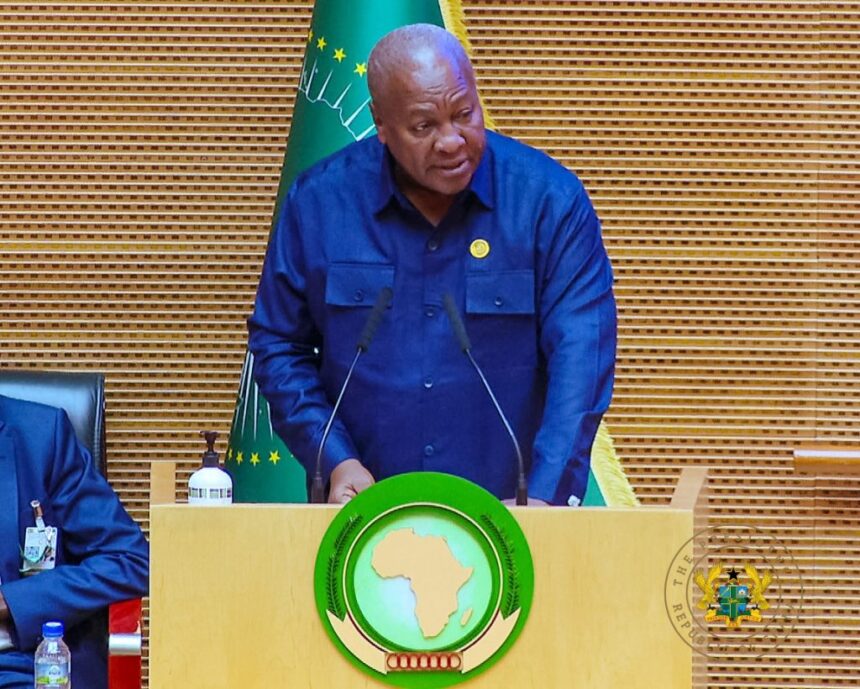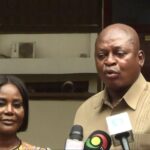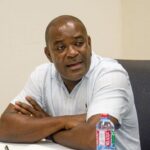Ghana’s President John Dramani Mahama has stated that his administration has no immediate plans to extend the country’s $3 billion Extended Credit Facility (ECF) with the International Monetary Fund (IMF), though he did not rule out the possibility of further engagement in the future.
Speaking to Bloomberg TV at the Munich Security Conference, Mahama said: “We’ve not talked about an extension of the programme. We are determined to continue with this programme,” adding: “If it’s necessary to look at additional funds or to extend the programme, we’ll look at it, but for now we are determined to continue on this trajectory.”
Mr Mahama outlined key proposals his administration has presented to the IMF, emphasizing tax rationalisation, debt management, and fiscal prudence as central pillars of Ghana’s economic recovery strategy.
Tax Reforms for Sustainable Revenue Growth
Tax reform was a focal point in recent discussions with the IMF. Mr Mahama criticised the previous administration’s approach of imposing multiple taxes, arguing that it had led to diminishing returns as higher tax burdens resulted in lower overall revenue collection.
“Because of the target of achieving 24 per cent revenue to GDP by 2028, the programme required that revenue should continue increasing at a certain rate,” he explained. “Unfortunately, what the previous government had done was just to slap on more taxes, and we had gotten to a stage where the more taxes that were put on, the less revenue that came in. And so it’s necessary for us to look at the whole tax handle, rationalise them, make them more transparent, easy to understand, so that we can have better compliance.”
Mr Mahama revealed that the IMF has agreed to provide technical assistance in streamlining Ghana’s tax system, ensuring greater efficiency and improved compliance among businesses and individuals.
Ghana’s ongoing debt restructuring remains a pressing concern, with domestic debt obligations exceeding $15 billion due in 2025. Mahama highlighted his administration’s efforts to manage these repayments, including reactivating the country’s sinking fund to ease the burden.
“We also have the issue of the debt restructuring and humps that have been created this year. We have to pay in excess of 15 billion (dollars) on the domestic debt exchange,” he noted. “So what we’ve done is to reactivate the sinking fund and put more resources into it to take care of the repayments that have to be made this year.”
He further underscored his government’s commitment to fiscal discipline, emphasizing the importance of expenditure rationalization. “We must be more prudent in our handling of our finances, we must also look on the expenditure side and see how we can cut waste and also shift resources to more priority programmes,” he said.
Looking ahead, Mr Mahama pointed to the upcoming budget presentation in March, which will integrate insights from the IMF’s latest staff review. The fourth IMF review is scheduled for April, and the government is aligning its fiscal policies with the fund’s recommendations.
“The next review, which will be the fourth review, is due in April, but before that, we’ll present the budget in March,” he explained. “So the budget will take into focus some of the issues that have come out from the staff mission. We’re hoping to receive the aid memoir today or tomorrow, and looking at the issues that IMF raises, we will incorporate them in the budget.”
Despite Ghana’s economic challenges, Mr Mahama expressed confidence in the country’s relationship with the IMF, describing it as “cordial.” He reiterated his administration’s commitment to ensuring the successful implementation of the ECF programme and steering the country towards economic stability and growth.






